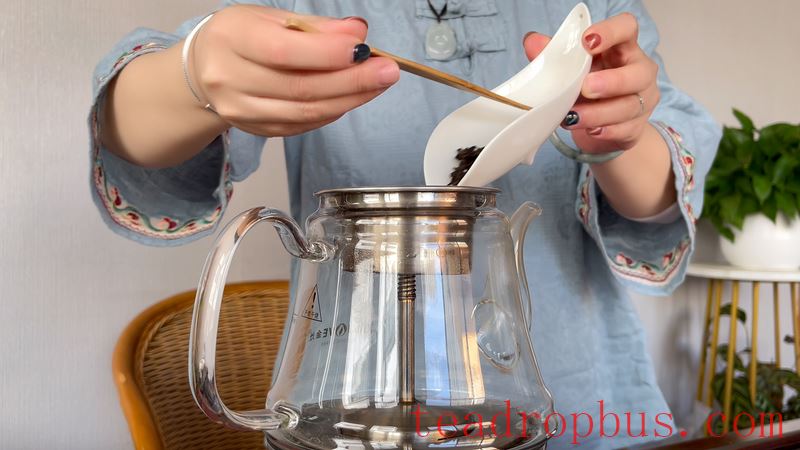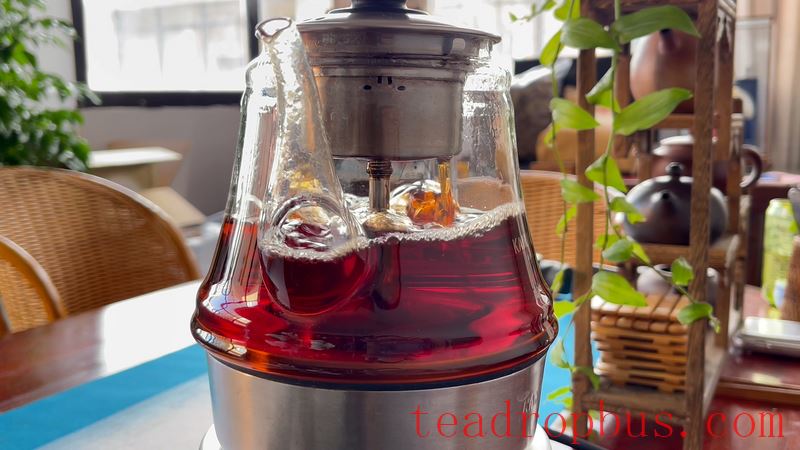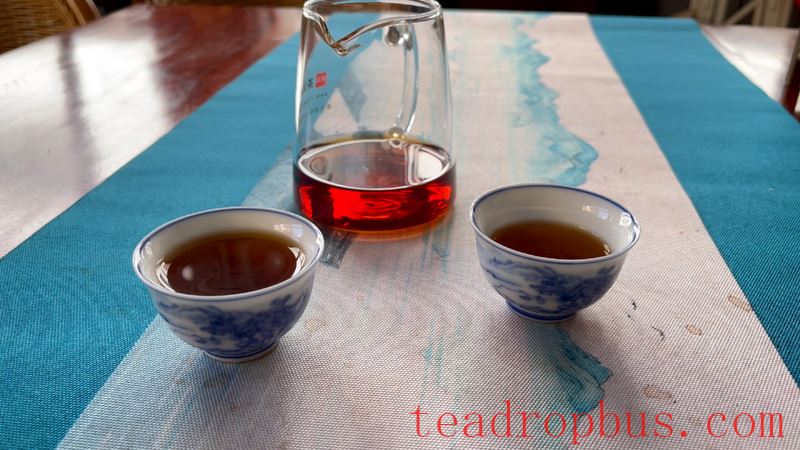Boil a pot of water, use the temperature of the water to warm the Tea leaves, and you'll have brewed a cup of fragrant tea. Everyone who drinks tea knows that it shouldn't be steeped too many times, but most also know that some teas can be boiled. So how do you boil tea?

What Are the Benefits of Boiling Tea
1. Releases More Internal Substances
British scientists found that boiling tea allows the leaves to release more of their internal substances compared to brewing with boiling water, enhancing Health benefits and anticancer properties. Studies show that boiling tea in a kettle for 5 minutes results in the highest concentration of antioxidants that can absorb harmful substances. An hour after Drinking Tea boiled for 5 minutes in a kettle, the level of antioxidants in the blood increases by 45%.
Boiling tea also enables a full release of substances such as catechins, caffeine, and tea pigments, enhancing effects like invigoration, fat reduction, and disease prevention, which are beneficial to human health.
2. Enhances the Aroma of the Tea
In many regions, water heated in a standard kettle does not reach boiling point, and hot water cools quickly in winter. This makes it difficult to bring out the aroma and flavor of teas like Pu'er, which require high water temperatures. The taste may be somewhat bitter and astringent.

When tea is boiled in a kettle, the water temperature can be maintained at around 100°C, ensuring that the tea brewed with this high-temperature water has a rich and undiminished aroma. This is why some people prefer to heat water or boil tea using metal kettles made of iron or silver, which conduct heat well.
3. Prolongs Drinking Time
Some teas should not be boiled directly but can be transferred to a kettle to start boiling when they become weak after several infusions. When tea becomes weak, it doesn't mean that all its components have been extracted; rather, brewing alone is insufficient to release certain substances. Particularly good teas with rich internal qualities release flavors slowly and in layers, and can benefit from a brief boiling after brewing.
4. Improves Water Quality
According to experienced tea drinkers, some waters used for brewing tea are hard, but boiling them improves the texture and taste, making the tea soup more pleasant and enhancing the overall mouthfeel.

How to Boil Tea
In the Tang and Song dynasties, boiling tea was common practice. The method involved first grinding the tea leaves into a fine powder and forming them into cakes. When drinking, the tea would be crushed and boiled with ingredients like scallions, ginger, orange peel, mint, dates, and salt. The resulting tea did not retain the original taste of the tea.
Nowadays, when we boil tea, we focus more on appreciating the natural flavor of the tea. Therefore, the following points about boiling tea are crucial!
There are two common methods of boiling tea: one involves boiling the tea after multiple infusions, and the other involves boiling it without any prior Steeping. The amount of tea used and the taste differ between these two methods.
If the tea is first brewed in a Gaiwan until it becomes weak and then boiled, this method requires a high-quality tea base, preferably aged for many years.
For example, Pu'er tea nuggets or aged raw or ripe teas.
If the tea is boiled without prior brewing, the tea will have a stronger character and a richer taste, and less tea should be used to achieve the best flavor.